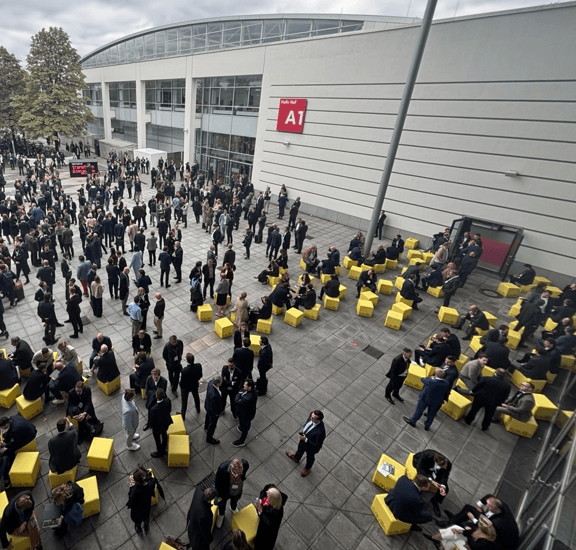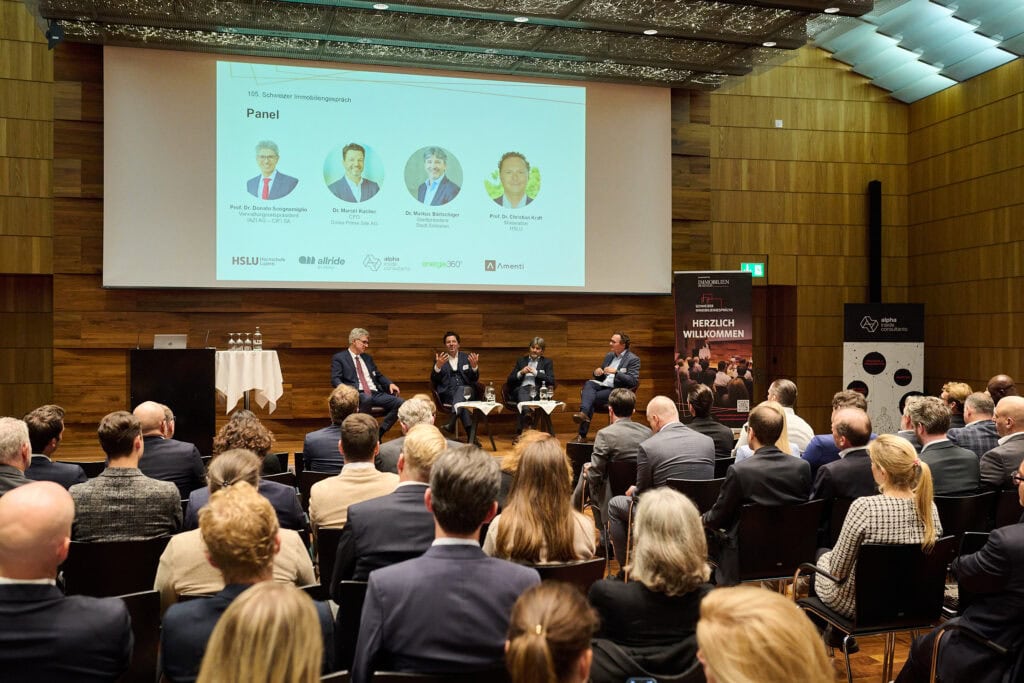"In-depth discussion instead of a flurry of activity".
Summary of the 61st Real Estate Talk: "Housing for Refugees - Real Estate Business Answers"

"The situation is changing from day to day, how it will develop in the medium term is not foreseeable at the moment" FDJP
The situation is serious, but not critical. At least that is the short form of a Communiqués of the Federal Department of Justice and Police (FDJP) from mid-November. Although Switzerland is experiencing an increase in the number of asylum applications - 250 refugees have been arriving every day since the beginning of November - the federal government and the cantons are still convinced that they will be able to meet the challenges. However: the emphasis is on "still", because in its communications the FDJP also points out that reliable forecasts about the influx of refugees are impossible: "The situation changes from day to day, how it will develop in the medium term is currently not foreseeable".
High time, then, to address the issue. Because one thing is clear: the arriving masses must be housed appropriately. Thus, the 61st Swiss Real Estate Talk by IMMOBILIEN Business had the topic: Housing for Refugees. Three illustrious speakers were invited to share their knowledge and opinions with the audience:
- Ernst Hauri of the Federal Office of Housing
- Martin Neff, Chief Economist of the Raiffeisen Group Switzerland
- Thomas Zinnöcker, Vice President of Vonovia SE and Deputy Chairman of the Management Board of ZIA Zentraler Immobilien Ausschuss.*
Germany has experience with mass immigration. When ethnic German repatriates arrived in the 1990s, a residential allocation law came into force for them - not least out of concern about segregation. The state had good experiences with this law, described Thomas Zinnöcker, deputy CEO of Germany's leading housing company Vonovia SE. "Today, 20 years later, 70 percent of immigrants still live in these assigned places and are satisfied." However, he said, the law is now no longer in force - and today we face a much bigger challenge. The real estate industry does not have a solution, but it can contribute to one, Zinnöcker emphasized. The living conditions of those who have moved in should change in parallel with their length of stay and status - from temporary emergency accommodation to permanent housing. Flexible, pragmatic solutions are needed, he said, and the real estate industry wants to be involved. The industry must clearly distance itself from "free riders", i.e. real estate owners who want to take advantage of the emergency situation. There are 1.7 million empty flats in Germany - but these are generally not aimed at the target group. The question of affordable housing will arise with a new urgency, Zinnöcker said. In his view, the most important tasks include the construction of new buildings in line with demand and the question of whether, with a view to the particularly urgent need for affordable housing, regulations that make construction more expensive should not be reconsidered and regulations on costly energy efficiency measures should be relaxed. According to Zinnöcker, expropriation measures to provide housing, such as those being considered in the German city states of Hamburg and Bremen, should be rejected. The influx of refugees is a challenge, but in view of the demographic development also as an opportunity for his country, said Zinnöcker and pleaded for medium- to long-term solutions. For this, he said, a round table of all stakeholders was a prerequisite.
Impressions of the 61st Real Estate Meeting











































